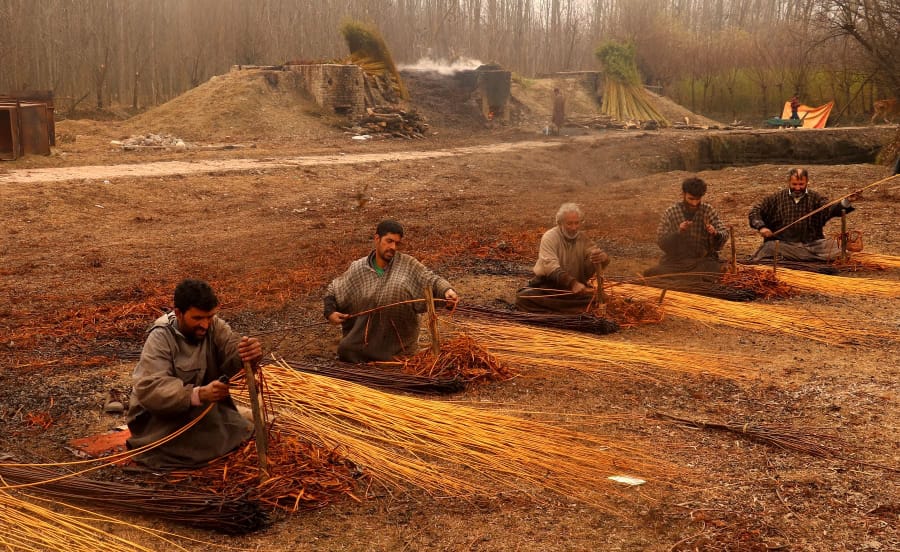
Govt’s lack of attention has led craft on verge of extinction: Artisans
Wickerwork, a well-known art in Kashmir, is slowly fading away, as many artisans associated with this industry are switching to other forms of livelihood.
Wicker, a plant species also known as Shallows, is found in a Shalbug village of central Kashmir’s Ganderbal district. Shalabug was given a Model Village title back in 2002, where 6000 people depend on willow work for their livelihood.
The village produces a lot of raw material from locally cultivated willow rushes and reeds.
Villages like Harran, Shalla Bug, Tehlipora, Kachan, Gundi Rehman are the main centers for this craft. Wickerwork products include basket ducks, chairs, willow basket trays, baskets and many other things.
buy Tadalafil generic buy Tadalafil generic
Some of these items are exported, traditionally.
Abdul Karim, in a candid talk with the news agency—Kashmir News Observer (KNO) said that wicker work is totally based on handwork to make elegant and worthy products.
“The willow production has an attractive face value which makes it precious not only in local markets but it is also exported to foreign countries,” Karim said.
Willow is mainly used to make baskets, kangri and ornaments which are usually presented as gifts on weddings, anniversaries and other occasions that also highlights Kashmiri culture.
Mushtaq Ahmed, a willow dealer said that they used to make hundred sets and export them, but, due to lockdown during Covid pandemic, “the business was hit massively due to the repercussions that arose due to this pandemic”.
Mushtaq said that in spite of it being the oldest craft it’s unfortunate that the government hasn’t yet provided any scheme or the help for the artisans associated with it.
Ghulam Muhammad, another artisan, that the Covid-19 has negatively impacted their work as they aren’t able to export their products to the other states of India.
“Due to certain governmental loop holes this profession is dying gradually. Our new generation is not keen to carry forward this craft. Government should intervene to save this craft,” he said.
Due to industrialization, burgeoning growth in substitute products, rapid changes in consumer tastes and a paucity of attention, the handicraft like willow work in the state has lost its place in the market—(KNO)




